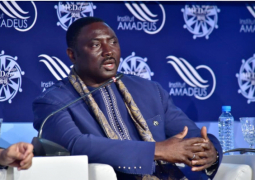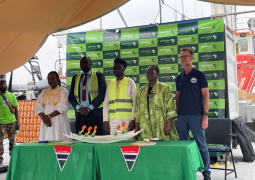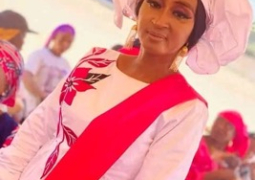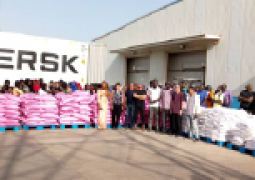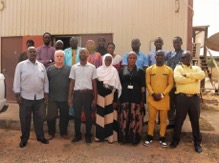
The training brought together participants from the Department of Water Resources (DWR), National Environmental Agency (NEA) and the University of The Gambia (UTG).
The “Project GCCA+ Climate Resilience Coastal and Marine Zone project for The Gambia” aims at consolidating results and positive experiences of the previous GCCA project “Support to The Gambia for Integrated Coastal Zone Management (ICZM) and the mainstreaming of climate change” 2013-2016.
Coastal communities will benefit from the project which will help them to adapt to impacts of climate change through institution strengthening, knowledge management, and demonstrated implementation of the National Decree of the Integrated Coastal Zone Management (ICZM) approach, at national and local levels.
Dr Peter Gibba, Chief Meteorologist at the Department of Water Resources (DWR) and Focal Person for the GCCA+ described seasonal forecasting as very important, saying this is because they need to inform people, especially farmers about what the season is going to look like so that they can prepare themselves.
He added that farmers need to know when the season will start and end to prepare themselves and select crop varieties to grow during that season.
He pointed out that for so many years The Gambia has been depending on different models from different countries but stated that with the help of GCCA+ they want to use their own models and expertise to be provide seasonal forecasting for the Gambian population.
Dr Gibba highlighted that the training would improve their capacity especially for what this season will look like, adding that they may also have the capacity to do flood forecasting which is important for The Gambia.
He advised participants to take the training seriously and learn new things to be able to use the tools as well as urged them to share the knowledge gained.
He told people that seasonal forecasting is not easy and that they use scientific tools, data and information and not hearsay. “Gambians should be able to believe the forecast we give and take the information for their own decision making,” he said.
Dr Matayo Indeje, a Kenyan expert and course trainer who works with GCCA+ Project in The Gambia said with the training, forecasters can now use the forecast to make projections that impacts or gives information to other sectors as well.
He pointed out that institutional forecasting is good for planning because it takes between 3 to 6 months ahead. He added that the model improves forecasting techniques as it uses the latest development in forecasting techniques.
He also said that the training will teach participants about how to get other data they do not usually get as well as give them the software they can use to make their forecast before they go for the bigger forum held in Africa. He urged participants to make best use of the training and learn something from it to ensure it assists them in their work.
Read Other Articles In National News
